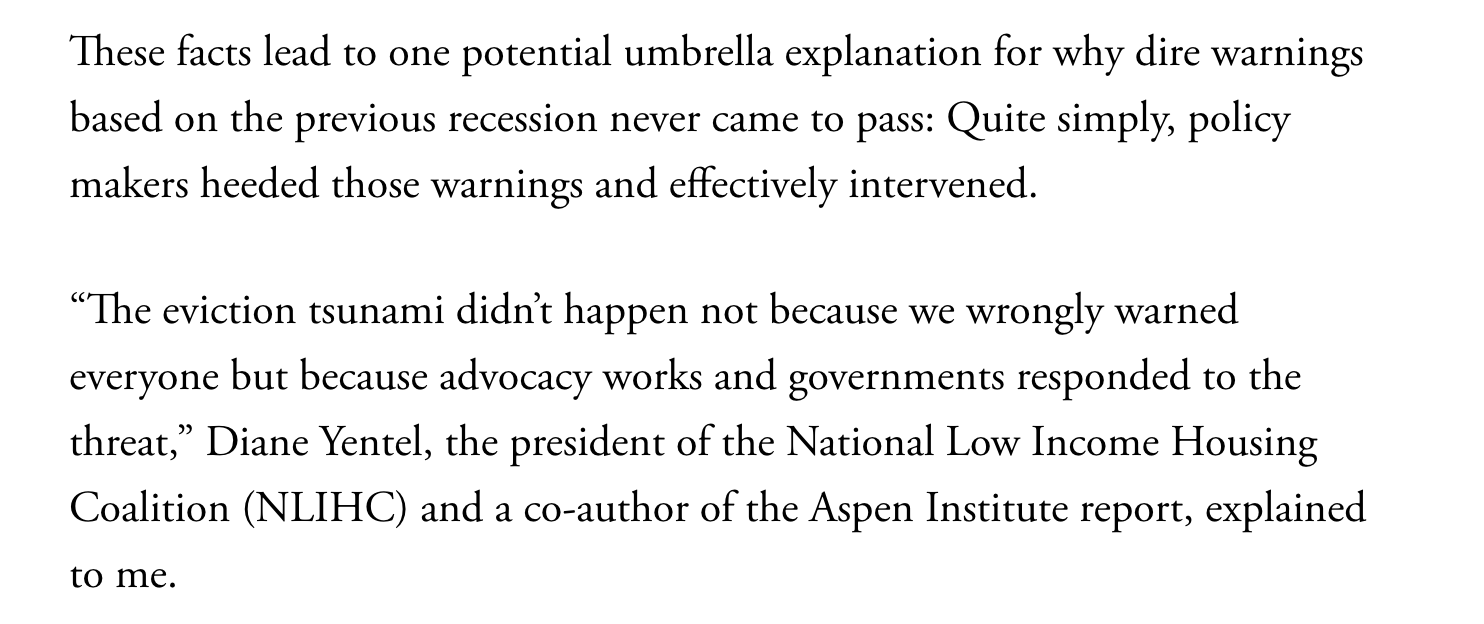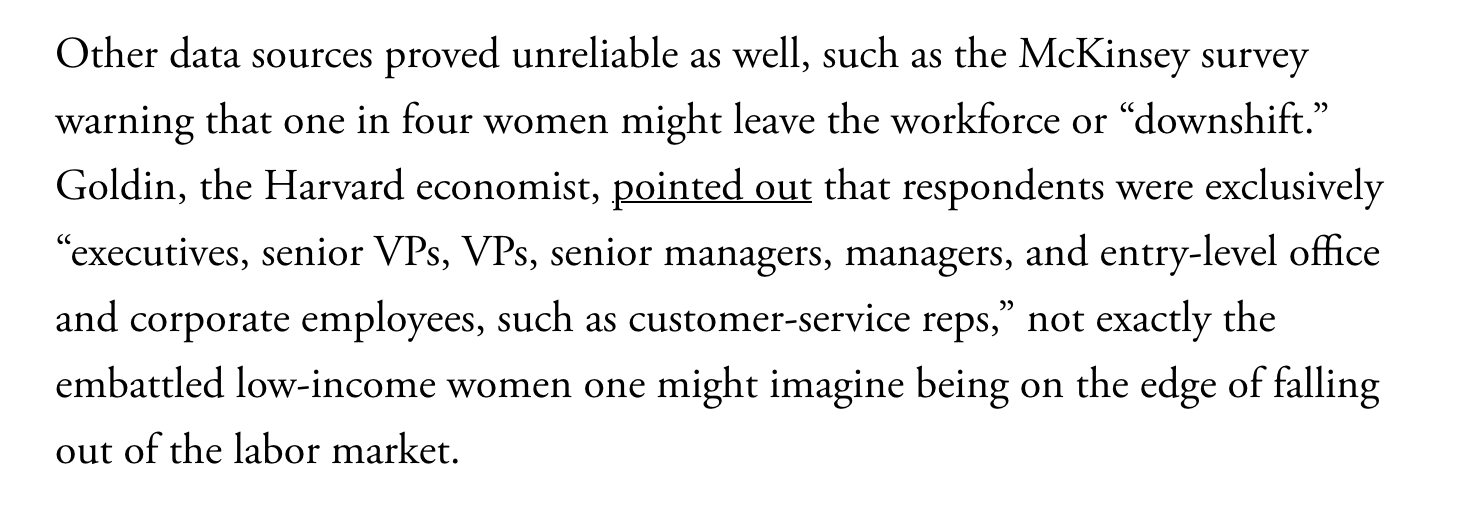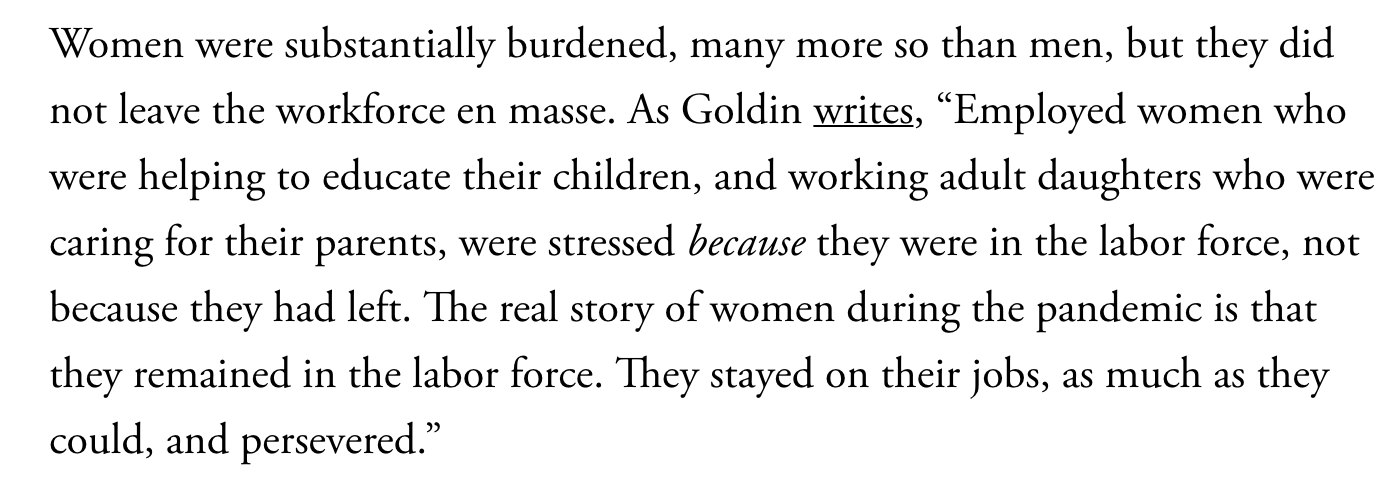Thread
New >> In 2020, a lot of people were making a lot of predictions.
Some of it was helpful, much of it was wrong.
In my first for @TheAtlantic I look back at some of the predicted catastrophes that weren't. (Thread)
www.theatlantic.com/ideas/archive/2022/04/pandemic-failed-economic-forecasting/629498/
Some of it was helpful, much of it was wrong.
In my first for @TheAtlantic I look back at some of the predicted catastrophes that weren't. (Thread)
www.theatlantic.com/ideas/archive/2022/04/pandemic-failed-economic-forecasting/629498/
Before we get into the why, I want to point out that there hasn't been much of a reckoning about how wrong some of these extremely prominent predictions were.
The eviction "tsunami" which was predicted to be up to 40 million people? Evictions are below trend from pre-pandemic.
The eviction "tsunami" which was predicted to be up to 40 million people? Evictions are below trend from pre-pandemic.
The "she-cession" where many claimed that women would drop out of the labor force en masse or significantly lower their working hours?
Research from @PikaGoldin tells a different story, the labor force participation rate for women in Nov 2021 was the same as it was in Nov 2018.
Research from @PikaGoldin tells a different story, the labor force participation rate for women in Nov 2021 was the same as it was in Nov 2018.
And rarely have I seen folks point out the forecasting failures of businesses early in the pandemic. One clear example of this was the expectation of a housing market crash.
And who could forget the widespread fears of a state and local budgeting crisis? While there is some variation, by and large their coffers are fine, and in some cases, overflowing.
There are four broad cause areas I explore for why these predictions were so off base -- not every cause area applies in every circumstance:
1) Fighting the last war
2) Data overload
3) Bias
4) Underestimating resilience
1) Fighting the last war
2) Data overload
3) Bias
4) Underestimating resilience
1) Many people were basing their predictions off of what happened following the 2008 recession when the federal government's fiscal response was insufficient.
But much was different in 2020, in March (the very same month the recession began!) the USFG enacted a $2.2 trillion bill called the CARES Act.
As @LSheiner explained things like unemployment had made many Americans financially whole.
As @LSheiner explained things like unemployment had made many Americans financially whole.
The fiscal response helps explain why another failed prediction (mass small business closures) never happened. It helps explain why state and local coffers were fine (everyone was still paying taxes) and eviction advocates believe it explains why the tsunami never happened too.
But, that's not the full story. This brings us to 2) Data overload.
There was SO MUCH data floating around and so much analysis and one-off stories about working papers.
But, as @jasonfurman told me some of this was "knowledge subtracting."
There was SO MUCH data floating around and so much analysis and one-off stories about working papers.
But, as @jasonfurman told me some of this was "knowledge subtracting."
This was a common media cycle: New study comes out saying bad thing X is going to happen --> Article gets published without any explanation of the uncertainty or whether the underlying data is good --> more credible research finds the opposite months later to little fanfare
3) Bias -- a lot of the errors seem to point in the same direction: Towards a left-of-center policy agenda.
A lot of the research coming out was co-authored by advocacy groups who had a real incentive to paint a drastic picture in order to get aid passed. And the media has a role to play in this as well.
4) Underestimating resilience
When things get bad... most people figure it out! This shouldn't be surprising and it cannot be an argument for withholding social supports.
When things get bad... most people figure it out! This shouldn't be surprising and it cannot be an argument for withholding social supports.
Long thread! There's a lot more in the article! www.theatlantic.com/ideas/archive/2022/04/pandemic-failed-economic-forecasting/629498/















